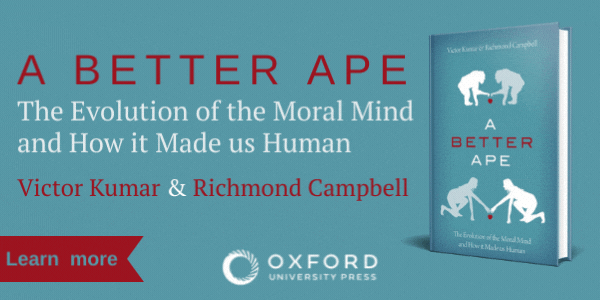Linguistic Society of America Considers Free Speech Resolution
The Linguistic Society of America (LSA), the main professional organization in the U.S. for academic linguists, is considering adopting a version of the “Chicago Principles on Freedom of Expression.”

The resolution is sponsored by Noam Chomsky, Sabine Iatridou, Pauline Jacobson, Jason Merchant, Pritty Patel-Grosz, Yael Sharvit, Philippe Schlenker, Tim Stowell, Harold Torrence, and Charles Yang, and is in its 30-day comment period. A ballot date to vote on the resolution has not yet been set.
Here’s the body of the resolution:
Because the Linguistic Society of America (LSA) is committed to free and open inquiry in all matters, it guarantees all members of the LSA community the broadest possible latitude to speak, write, listen, challenge, and learn. Except insofar as limitations on that freedom are necessary to the functioning of the Society, the LSA fully respects and supports the freedom of all members of the LSA community “to discuss any problem that presents itself.”
Of course, the ideas of different members of the LSA community will often and quite naturally conflict. But it is not the proper role of the Society to attempt to shield individuals from ideas and opinions they find unwelcome, disagreeable, or even deeply offensive. Although the LSA greatly values civility, and although all members of the LSA community share in the responsibility for maintaining a climate of mutual respect, concerns about civility and mutual respect can never be used as a justification for closing off discussion of ideas, however offensive or disagreeable those ideas may be to some members of our community.
The freedom to debate and discuss the merits of competing ideas does not, of course, mean that individuals may say whatever they wish, wherever they wish. The Society may restrict expression that violates the law, that falsely defames a specific individual, that constitutes a genuine threat or harassment, that unjustifiably invades substantial privacy or confidentiality interests, or that is otherwise directly incompatible with the functioning of the Society. In addition, the LSA may reasonably regulate the time, place, and manner of expression to ensure that it does not disrupt the ordinary activities of the Society. But these are narrow exceptions to the general principle of freedom of expression, and it is vitally important that these exceptions never be used in a manner that is inconsistent with the Society’s commitment to a completely free and open discussion of ideas.
In a word, the LSA’s fundamental commitment is to the principle that debate or deliberation may not be suppressed because the ideas put forth are thought by some or even by most members of the LSA community to be offensive, unwise, immoral, or wrong-headed. It is for the individual members of the LSA community, not for LSA as an institution, to make those judgments for themselves, and to act on those judgments not by seeking to suppress speech, but by openly and vigorously contesting the ideas that they oppose. Indeed, fostering the ability of members of the LSA community to engage in such debate and deliberation in an effective and responsible manner is an essential part of the LSA’s educational mission.
As a corollary to the Society’s commitment to protect and promote free expression, members of the LSA community must also act in conformity with the principle of free expression. Although members of the LSA community are free to criticize and contest the views expressed in academic, professional, and other settings, and to criticize and contest speakers who are invited to express their views, they may not obstruct or otherwise interfere with the freedom of others to express views they reject or even loathe. To this end, the Society has a solemn responsibility not only to promote a lively and fearless freedom of debate and deliberation, but also to protect that freedom when others attempt to restrict it.
You can view the whole resolution and the discussion of it among LSA members here.
Commenters raise a number of questions about the powers of the LSA to enforce this resolution, the contexts in which it may be thought to apply, what events relevant to the LSA’s domain that might have precipitated the resolution, its possible effectiveness, the ways it might inhibit speech, its consistency with the aims of the organization, the implications of the last paragraph about individual members’ responsibilities, and more. One commenter links to a piece by philosopher Sigal Ben-Porath (University of Pennsylvania) on the limited value of the Chicago Principles. The discussion is quite interesting.



The context in which this proposal was put forward makes it clear that its proponents are not actually interested in protecting free expression and creating an environment in which views may be freely expressed and debated. Among other things, the same group who originally proposed this resolution to the LSA’s executive committee also, as part of the same batch of requests, proposed that the LSA forbid the inclusion of opinion/commentary essays in its scholarly publications—a move antithetical to fostering the open exchange of ideas. This suggests that this proposal was put forward with a motive other than actually promoting free expression in the scholarly community of linguistics. A member of the LSA explores the context and implications of this proposal in a Medium essay here.
Since the two other proposals were rejected, it is hard to see what relevance they have to the remaining motion, aside from, as you suggest, perhaps speaking to the motive of the the proponents. But isn’t it possible to assess the remaining proposal on its merits, irrespective of the motives of those who brought it, even if we assume some nefarious motives?
If you offer me pizza to raise my cholesterol level, can’t I know that and still eat the pizza because I judge it’s best for me?
It’s very hard to assess the proposal on its merits because it has none. I phrase that facetiously; obviously, but seriously, the proposal is so vague that to implement it literally would be antithetical to the existence of the LSA as a scholarly organization. Among other things, it seems the principles stated in the proposal would forbid journal editors and peer reviewers from recommending against articles for publication. Given a proposal that leaves so much to interpretation, it’s important to ask what interpretation the proponents intended, and why they chose to formulate their intentions in this way. Linguists know that there is more to communication than the literal meaning of the words that are on the page. The authors of the proposal are not fools, and it’s at least reasonable to hypothesize that they have reason to believe that the proposal they put forward will help accomplish their goals; if their goals are malign, it is valuable to know that and to interpret a perhaps superficially-appealing is vague text with that in mind.
The only thing that the proposal is clear about is that it locates the potential threats to free expression that it is so concerned about in the behavior of individual LSA in the behavior of LSA members. The principle it is most specific about is that “members of the LSA community… may not obstruct or otherwise interfere with the freedom of others to express views.” But no actual threat to freedom of expression by the actions of LSA members has been suggested. The text of the proposal explicitly locates the threat to free expression, correctly, in the hands of “autocratic regimes and governments”; but it does not propose any measures or policies to protect free expression in the LSA from the actual source of the threats. Instead, it presupposes an unstated and unevidenced threat to free expression coming from within the LSA. This rhetorical sleight of hand, proposing policies unrelated to the problems the resolution purports to be trying to address, again makes us ask what the proponents are actually attempting to accomplish with this document; and interrogating their motives is relevant to that.
I don’t understand the opposition to the Chicago principles. Ben-Porath concludes that students “deserve our attention. Endorsing premade rules shuts them out.” But that last sentence doesn’t seem right. The premade rules place *restrictions* on how the institution might respond: they can’t cancel speaking invitations, get faculty fired for their views, or punish the organizers of the talk, etc. But that surely leaves plenty of room to discuss more academically appropriate ways for the students to voice their criticisms and concerns.
Which is all to agree with the more general thrust of Ben-Porath’s article, that endorsing the principles doesn’t by itself *resolve* how to deal with these free speech conflicts. But it at least seems a good first step, in ruling out some extremely bad responses.
It seems to me that more universities (and academic organizations) would do well to have explicit policies prioritizing academic freedom so that students (and others) have a better of sense of the range of responses that are, and are not, on the table when they have concerns about academic speech.
(But if I’m wrong about this, I’d welcome polite explanation of where I’m going wrong.)
I agree that having explicit principles is useful, and I agree that it is good for such principles to align with academic freedom. Endorsement of such principles in a scholarly society like MLA does not serve the same purpose as endorsing them at the university level (because the main goal of academic societies is sharing scholarship rather than educating young people). But I have a similar concern here too: those advocating for these statements are looking to close down conversation about what speech should be permissible within their institutions. Disagreements about the boundaries of acceptable speech at MLA (or At my university, Penn, or in other social and institutional contexts) are political, polarized, and important. Expecting that a statement would offer a conclusion silences those who disagree. It is also not likely to help resolve these disagreements. I favor providing platforms for sharing perspectives over calling for signatures on a statement. I appreciate the different views in this debate – thanks to Justin and others for including my thoughts.
Here’s a discussion I had with Chomsky about these questions in case these differences are of interest: https://m.youtube.com/watch?v=vw5KKIrJ8DM